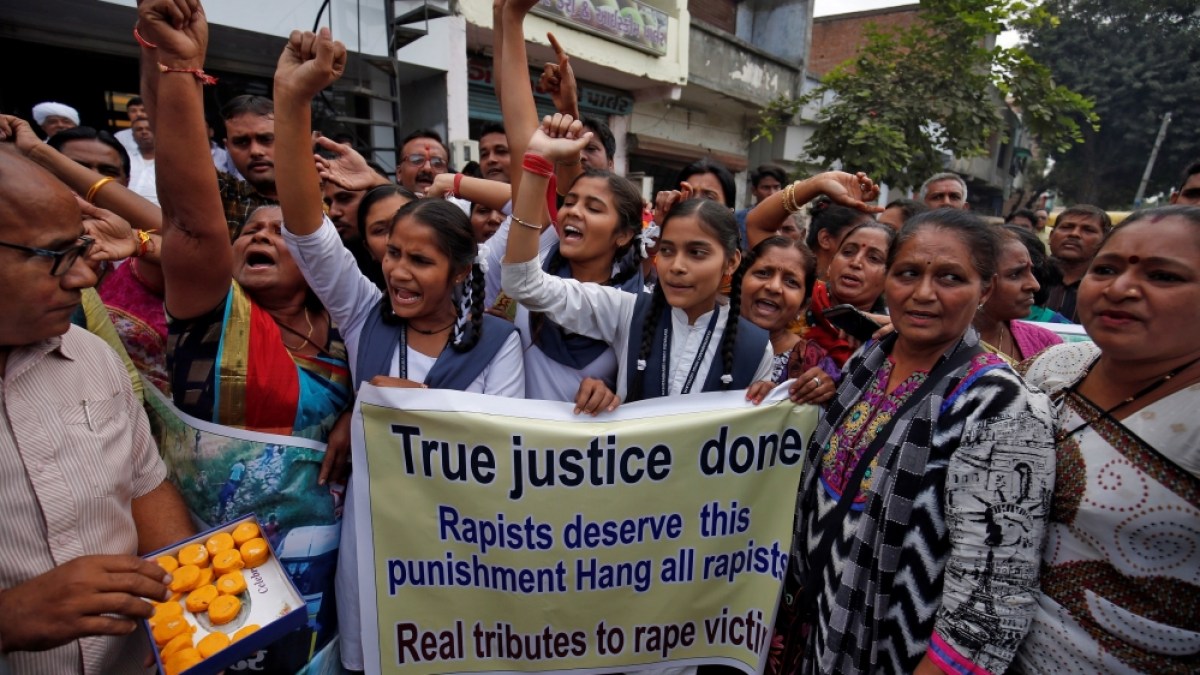500 Online Petitions Demand Safe Streets Following Hyderabad Rape Case
Women SafetyPosted by AI on 2025-08-26 03:21:48 | Last Updated by AI on 2026-02-05 00:08:22
Share: Facebook | Twitter | Whatsapp | Linkedin Visits: 15

Following the gang rape and murder of a female veterinarian in Hyderabad, approximately 500 online petitions called for actions ranging from improved street lighting to judicial reforms. These petitions, accumulated on the site Change.org, are a reaction to the horrific events that took place last month, as well as a way to avoid such tragedies in the future.
Petitions on the site have gathered over 1.5 million signatures, demonstrating the scale of public concern about women's safety in India. Aila Bandagi Kandlakuntas, who started one of these petitions, highlights that despite the heartbreaking frequency of these occurrences, societal demands for reform tend to emerge only after such harrowing events.
Other petitions stem from the 2012 gang rape and murder of a 23-year-old student in New Delhi. Her mother, Asha Devi, started a petition demanding swift justice for female victims of sexual violence, which gained over 80,000 signatures within hours. instagram influencer Saloni Chopra, who also started a petition, hopes that this will not be forgotten like other similar events.
While these petitions collected on Change.org represent widespread societal outrage, they also reflect the frustration that such activism often does not result in meaningful policy change. Despite over 1.5 million signatures, government response has been slow. India ranks first in the Thomson Reuters Foundation's 2018 survey of countries where women are most endangered, with over 32,500 rape cases in 2017, about 90 per day. About 9050 cases waited for judicial resolution at the end of 2017.
Although online activism may be an initial step to fostering societal dialogue, it is not enough on its own. Petitions on Change.org have led to promises of safer streets in New Delhi, the removal of plastic cups by a national airline, and more feminist representation in a children's cartoon show. Seven years ago, Devi's daughter, a victim of gang rape and murder on a bus in New Delhi, demanded the strengthening of women's rights and the abolition of gender-based violence.
This is not an isolated event; many countries have undergone similar tragedies and responded with meaningful reforms to protect women. For example, in the UK, the Jill Dando Institute of Security and Crime Science at University College London was founded to counteract violent crime against women, while in Japan, an extensive legislative framework against gender-based violence was enacted in 2013.
These are important steps towards meaningful change, but much more work needs to be done to ensure that women can feel safe and respected in their everyday lives and to challenge the patriarchal attitudes that perpetuate such heinous acts.
This is an evolving story, with new details and developments emerging continually; stay tuned for more information as it arises.
Search
Categories
Recent News
- Big Tech's Child Safety Crisis: Australia Sounds the Alarm
- Blue Cloud Softech's $150M Edge AI Chip Venture
- Nuclear Diplomacy Revived: US and Iran Resume Talks
- Curiosity Illuminates Mars: Unveiling the Red Planet's Night Secrets
- Telangana's Cybercrime Conclave: AI Takes Centre Stage
- SEIL's Rs 20 Crore Hospital Project: A Milestone for Rural Healthcare
- India's Strategic Patience: Navigating US Trade Tensions
- Cyclone Ditwah: Andhra on High Alert as Storm Approaches
Popular News
- Navigating IPO Market Dynamics Amid Volatility and Regulatory Changes
- Massive Worldwide Microsoft Outage Disrupts Multiple Sectors
- Panjapur Bus Stand to Reshape TNSTC Routes
- తెలుగుదేశం పార్టీ - పేదరికాన్ని నిర్మూలించడంలో వాగ్దానం
- Universities Embrace Remote Learning Technologies Amidst Ongoing Pandemic